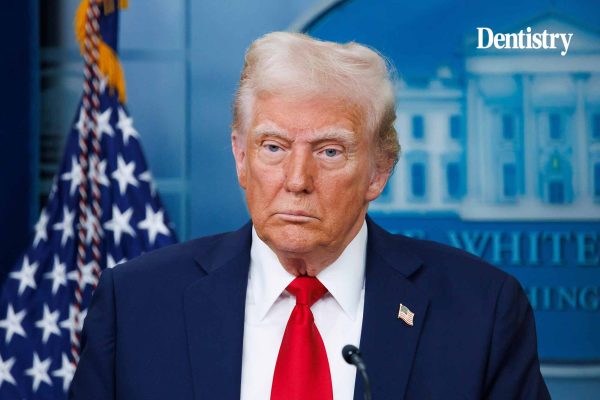Diagnosis and Testing of HIV Infection
18/10/2025

Last week, US president Donald Trump revealed a significant international tariff plan, the announcement having a profound impact on global stocks. We hear from Martin Lawrence, director of investments at Wesleyan, about what this means for the finances of dental professionals.
The president’s original trade plan featured a flat 10% baseline tariff on everyone and additional ‘reciprocal’ tariffs on several other countries.
He has since suspended higher tariffs on most countries for 90 days, instead focusing on the trade war with China.
We look at the impact the announcements had on global markets and what this means for dental professionals’ finances.
Martin Lawrence (ML): The US government has imposed a series of new tariffs – effectively taxes on imported goods – which will apply to a wide range of items coming into the country. A general 10% tariff has been applied to all imports, while steeper duties are set for goods from specific countries.
‘Yet, the long-term effect of this evolving situation is still unclear. A wider global trade dispute might occur if more countries choose to respond with tariffs of their own, which could put upward pressure on inflation and ultimately affect economic growth – particularly in the US’
This policy triggered a broad sell-off in global financial markets. However, President Trump has now paused on higher rate tariffs for most of its trading partners – the notable exception being China – causing markets around the world to rally.
Yet, the long-term effect of this evolving situation is still unclear. A wider global trade dispute might occur if more countries choose to respond with tariffs of their own, which could put upward pressure on inflation and ultimately affect economic growth – particularly in the US.
Markets do not respond well to uncertainty, and its likely we’ll continue to see short-term volatility as investors navigate a situation that is still changing daily.
ML: President Trump’s announcements have affected investment fund returns around the world. However, it’s important to remember that short-term volatility is a normal part of investing.
The last few days have shown us how quickly markets can snap back after a shock. Trying to time the market can mean investors miss out on rebounds, which could have a significant impact on returns. The best approach is to stay invested, stay diversified and stay focused on the long-term.
ML: Market volatility affects pensions like any other investment, but here taking a long-term view is even more important. Pension funds have a long-term investment horizon, and making rash decisions in reaction to events like this can be damaging and impact savers’ financial goals.
Pensions are a good example of a diversified investment, meaning capital is typically spread across different asset types, sectors and regions to reduce the impact fluctuations in any one area of the market. For example, while global shares may have fallen in response to the tariff news, other assets like bonds have generally held up better, helping to cushion the impact.
ML: While the headlines may feel unsettling, the most important thing to do is avoid panicking. Events like these are part of the investment journey, and history tells us that markets are resilient over time.
Of course, if dental professionals are feeling unsure or would like to talk things through, they should speak to a specialist financial adviser that understands their unique needs. They will be able to help them understand how their investments are positioned and whether changes are needed.
Follow Dentistry.co.uk on Instagram to keep up with all the latest dental news and trends.
Wellness360 by Dr. Garg delivers the latest health news and wellness updates—curated from trusted global sources. We simplify medical research, trends, and breakthroughs so you can stay informed without the overwhelm. No clinics, no appointments—just reliable, doctor-reviewed health insights to guide your wellness journey